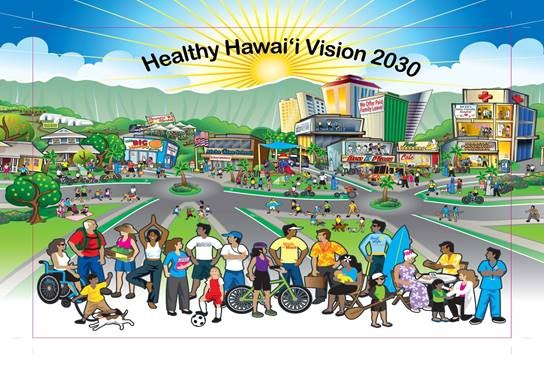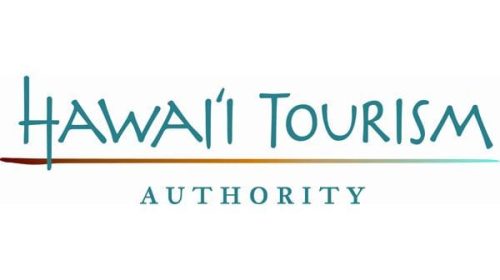New Healthy Hawai’i Strategic Plan
Over 200 stakeholders, advocates, and visionaries across the state gathered virtually today to launch the Healthy Hawai‘i Strategic Plan 2030 (HHSP), a roadmap for improving the health of Hawai‘i residents by preventing and reducing chronic disease. The HHSP and six (6) coordinating Program Area Plans—Asthma, Cancer, Diabetes, Heart Disease & Stroke, Physical Activity & Nutrition, and Tobacco Prevention & Control—aim to decrease death and disability and increase quality of life among Hawai‘i residents.
“Almost two thirds of Hawai‘i residents are living with at least one chronic condition such as diabetes or heart disease, which diminishes their overall health and puts them at risk for severe illness from COVID-19,” said Health Director Dr. Elizabeth Char. According to a recent study published in the Journal of the American Heart Association, over 60% of COVID-19 hospitalizations in the U.S. were attributable to obesity, diabetes, hypertension, and heart failure. “This pandemic has brought to the forefront the importance of chronic disease prevention and management; and has highlighted how inequities impact not only the health of individuals, but of our communities.”
With the goal of full implementation by the year 2030, the activities outlined in the HHSP and Program Area Plans will shape environments, policies, and systems statewide to support wellness. The HHSP and Program Area Plans portray the “Healthy Hawai‘i Vision 2030,” a shared visual concept depicting the future of Hawai‘i where every person can attain their full health potential. By transforming places where people live, learn, work, and play, these changes put healthy options within reach, and make the healthy choice, the easiest choice.
Noteworthy aspects of the “Healthy Hawai‘i Vision 2030” include:
- Communities with wider sidewalks and bike lanes that make walking and rolling to work easier and safer;
- Parks and beaches that are smoke-free and well-maintained;
- Chronic disease self-management classes conveniently located at worksites, schools, pharmacies or through telehealth;
- Safeguards that keep vaping products out of the hands of youth; and
- Sun protection guidelines in schools to lower the risk of skin cancers as keiki grow up.
To view the HHSP and Program Area Plans or to get involved in this transformational process, visit www.HHSP.hawaii.gov.




